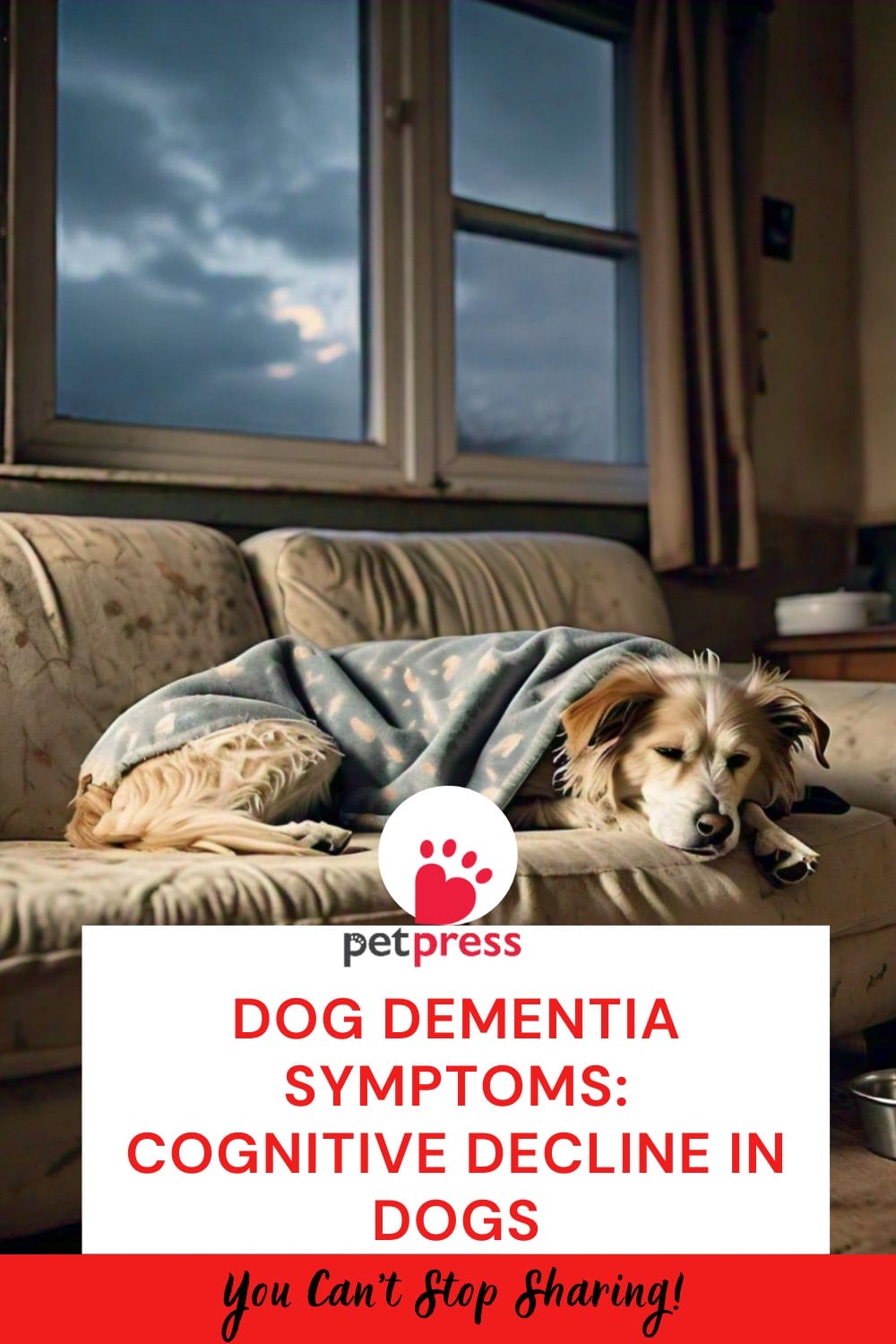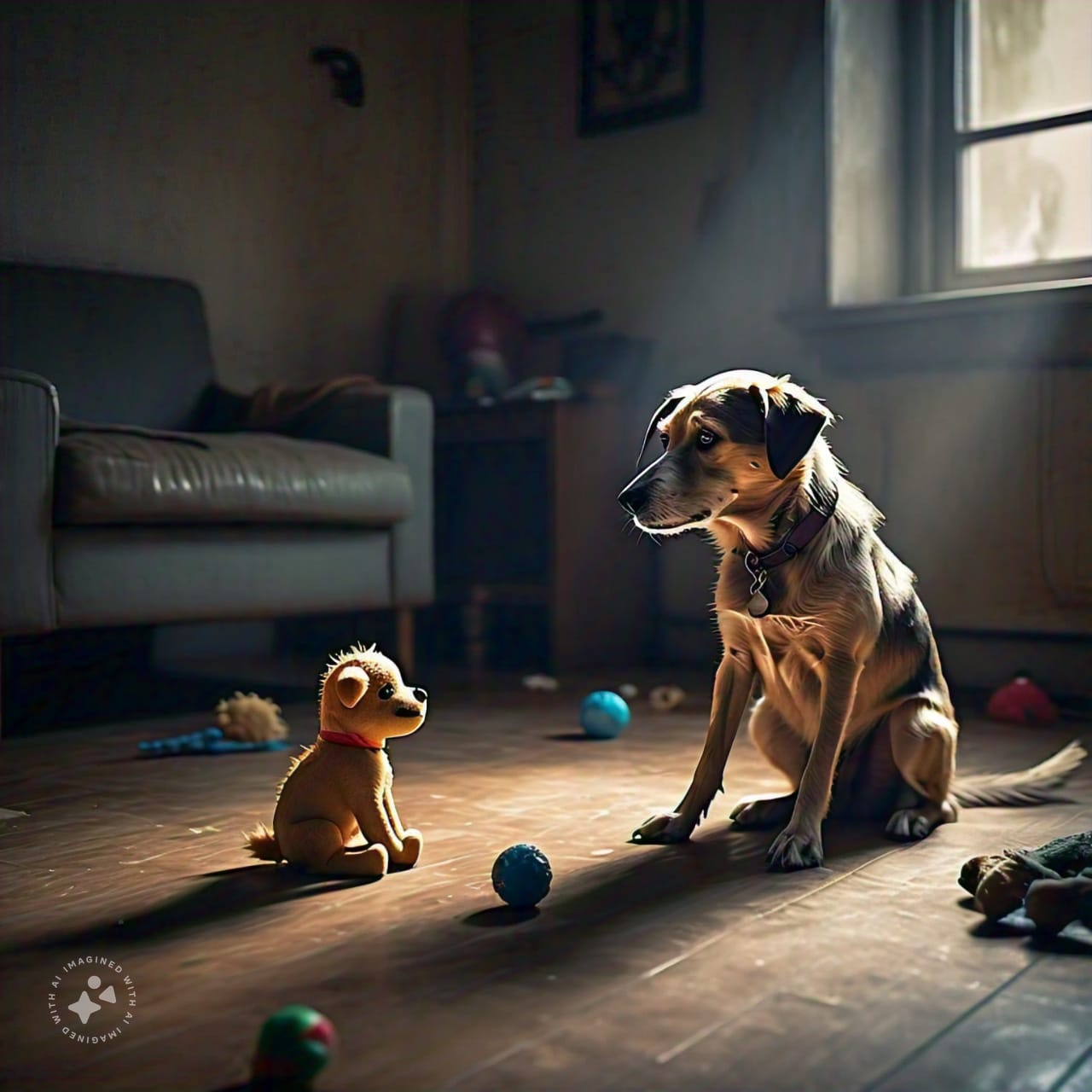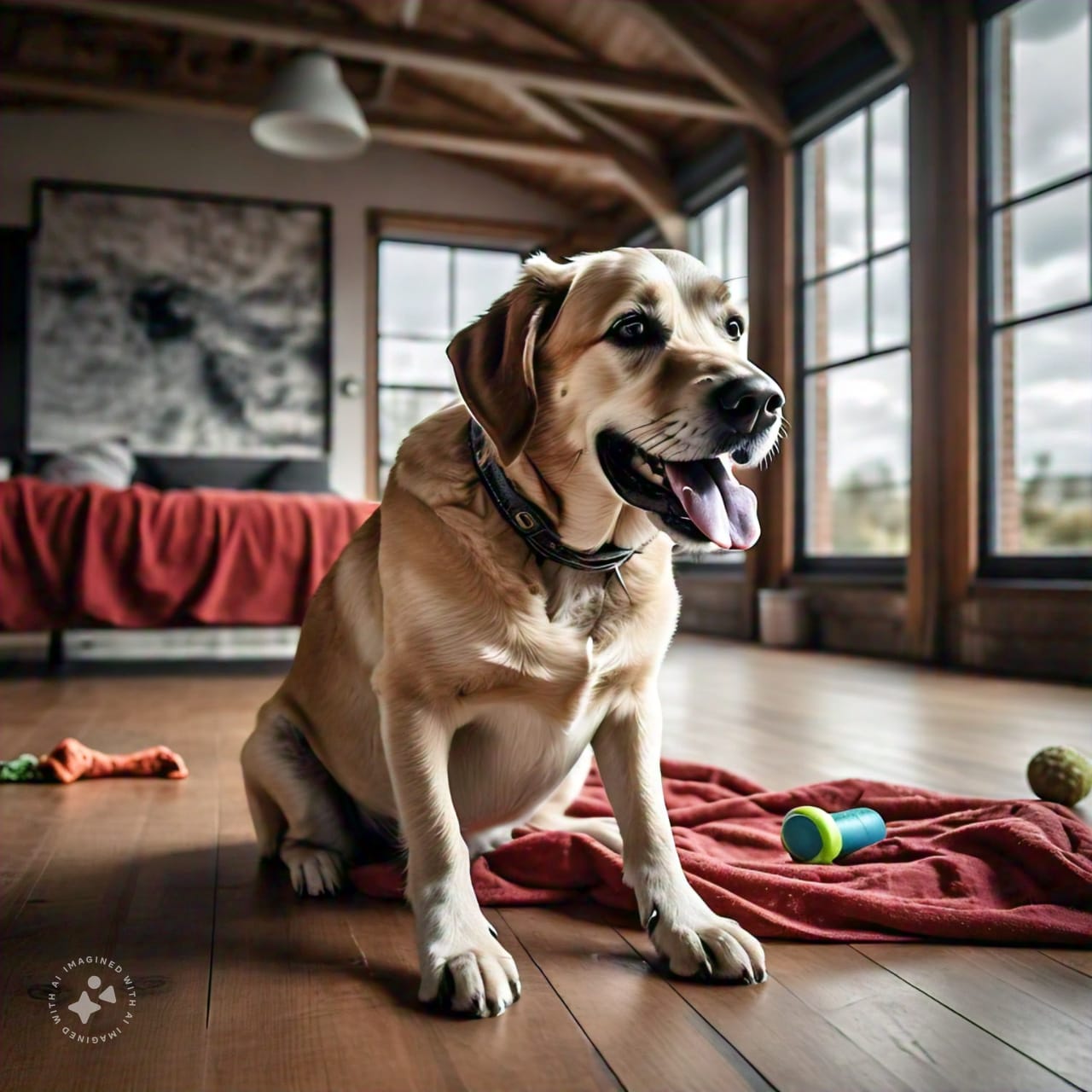
Dog Dementia Symptoms is quite a problem in dogs. As our beloved canine companions age, they may experience cognitive decline, similar to humans with conditions like dementia.
Dog dementia, also known as canine cognitive dysfunction (CCD), is a progressive neurological disorder that affects senior dogs.
Recognizing the symptoms of dog dementia is crucial for early intervention and providing appropriate care to improve their quality of life.
In this post, we will explore the history and significance of dog dementia, discuss the types of symptoms to watch out for, provide tips on treatment options, offer guidance on caring for dogs with cognitive decline, and address some frequently asked questions.
By understanding the signs and taking proactive measures, you can support your furry friend as they navigate this stage of life.
History and Significance of Dog Dementia
Dog dementia, or canine cognitive dysfunction, is an age-related condition that affects the brain function of senior dogs.
It is similar to dementia in humans and is believed to be caused by changes in the brain’s chemistry and structure.
As dogs are living longer due to improved veterinary care, the incidence of dog dementia has increased, highlighting the need for awareness and early detection.
The significance of recognizing dog dementia lies in the fact that early intervention can help slow down the progression of cognitive decline and improve a dog’s quality of life.
By understanding the symptoms and providing appropriate care, you can support your aging companion through this challenging phase.

Types of Dog Dementia Symptoms
Disorientation
Dogs with dementia may become disoriented in familiar surroundings, getting lost in their own home or yard. They may seem confused or stare blankly into space.
Changes in Sleep Patterns
Dogs with dementia may experience disrupted sleep patterns, such as pacing at night, restlessness, or excessive daytime sleepiness.
Altered Social Behavior
Dogs with dementia may exhibit changes in social behavior, such as increased irritability, decreased interest in interacting with humans or other pets, or seeking excessive attention.
Loss of Housetraining
Dogs with dementia may forget their housetraining or have accidents in the house, even if they were previously well-trained.
Reduced Activity Levels
Dogs with dementia may become less active, showing a decreased interest in their favorite activities or toys.

How to Treat Dog Dementia Symptoms?
While there is no cure for dog dementia, there are treatment options and strategies that can help manage the symptoms and improve the well-being of dogs experiencing cognitive decline:
Medication
Certain medications, such as selegiline and anipryl, may be prescribed by a veterinarian to help manage the symptoms of dog dementia.
These medications aim to increase the levels of neurotransmitters in the brain, improving cognitive function.
Environmental Enrichment
Create a stimulating environment for your dog by providing toys, puzzles, and interactive games. Mental stimulation can help slow down cognitive decline and keep your dog engaged.
Routine and Structure
Establish a consistent daily routine for your dog, including feeding, exercise, and sleep. Predictability provides a sense of security and familiarity for dogs with dementia.
Diet and Supplements
Consult your veterinarian about dietary changes and supplements that may support brain health. Omega-3 fatty acids and antioxidants are often recommended for their potential cognitive benefits.
Veterinary Care
Regular check-ups with a veterinarian are essential to monitor your dog’s overall health and discuss any changes in symptoms. They can provide guidance and adjust the treatment plan as needed.
Things to Keep in Mind
Patience and Understanding
Dogs with dementia require patience and understanding as they navigate this challenging phase. Be patient with any accidents or behavioural changes, and provide reassurance and comfort.
Safety Precautions
Make your home safe for a dog with dementia by removing any hazards or obstacles that could cause injury. Use baby gates or barriers to restrict access to dangerous areas, and provide a comfortable, accessible resting area.
Quality of Life
Focus on maintaining your dog’s quality of life rather than trying to reverse cognitive decline. Adapt your expectations and provide a supportive and loving environment.
Monitoring Progression
Keep track of your dog’s symptoms and any changes in behavior. This information will be valuable to share with your veterinarian during check-ups.
Seek Support
Reach out to support groups or online communities for caregivers of dogs with dementia. Sharing experiences and advice can provide emotional support and practical tips.

Conclusion
Recognizing the signs of dog dementia is crucial for early intervention and providing appropriate care to improve your furry friend’s quality of life.
By understanding the types of symptoms to watch out for, exploring treatment options, and following the tips for caring for dogs with cognitive decline, you can support your aging companion through this challenging phase.
Remember to consult your veterinarian for proper diagnosis, guidance, and a tailored treatment plan.
Frequently Asked Questions
There is no guaranteed way to prevent dog dementia, but there are measures you can take to support brain health and potentially reduce the risk. This includes providing a balanced diet, regular exercise, mental stimulation, and maintaining overall wellness through routine veterinary care.
While dog dementia is more common in senior dogs, it can occasionally affect younger dogs due to genetic factors or certain health conditions. If you notice any concerning symptoms in a younger dog, consult your veterinarian for evaluation.
Some natural remedies and alternative therapies, such as herbal supplements, acupuncture, and aromatherapy, are believed to have potential benefits for dogs with dementia. However, it’s important to consult with your veterinarian before trying any alternative treatments to ensure they are safe and appropriate for your dog.
Unfortunately, dog dementia cannot be reversed or cured. However, early intervention and appropriate management can help slow down the progression of cognitive decline and improve a dog’s quality of life.
The progression and lifespan of a dog with dementia can vary. On average, dogs may live for several months to a few years after the onset of symptoms. However, it’s important to note that each dog’s situation is unique, and the progression of the disease can vary significantly.
Remember, if you suspect your dog may be experiencing dementia symptoms, it’s crucial to consult with a veterinarian for a proper diagnosis and guidance on the best course of action.
With love, care, and appropriate management, you can support your furry friend through this challenging phase and ensure their well-being.
- Dogs Pooping Blood: A 2026 Guide for Concerned Pet Parents - February 23, 2026
- How to Celebrate a Dog’s First Birthday on a Budget: 2026 Guide - February 18, 2026
- Best Shampoo for Sensitive Skin Dog Grooming: 2026 Guide - February 12, 2026


GIPHY App Key not set. Please check settings